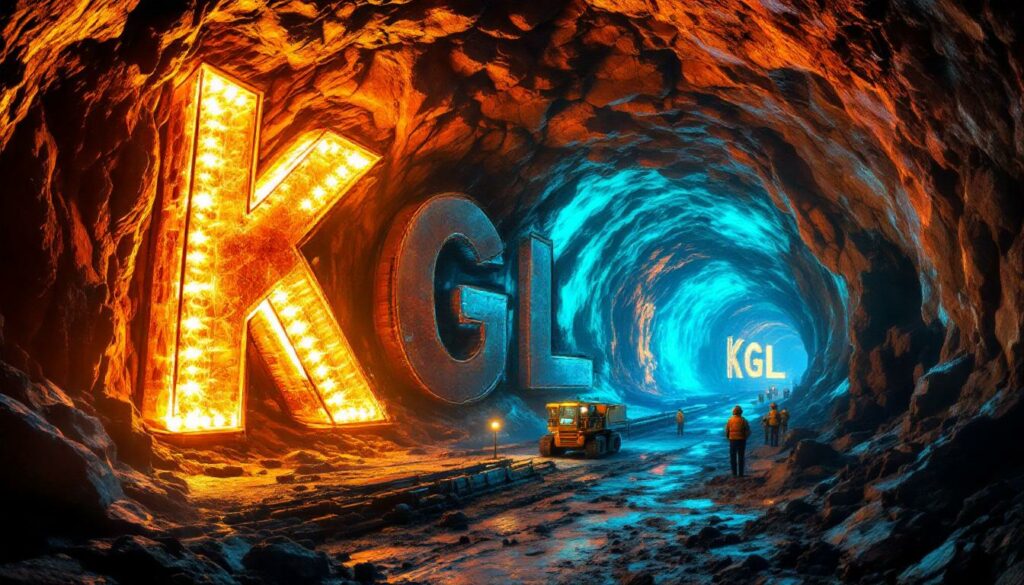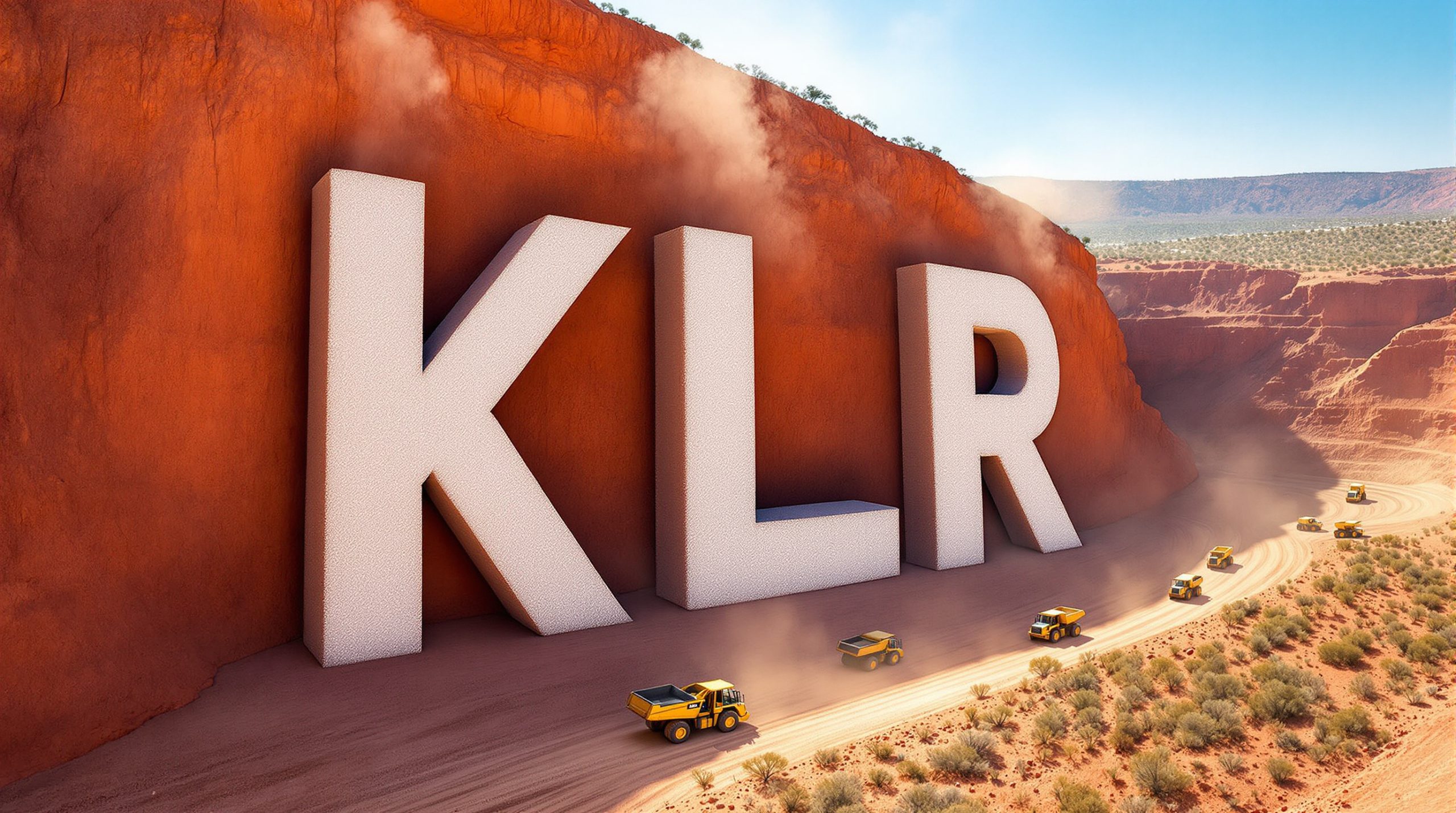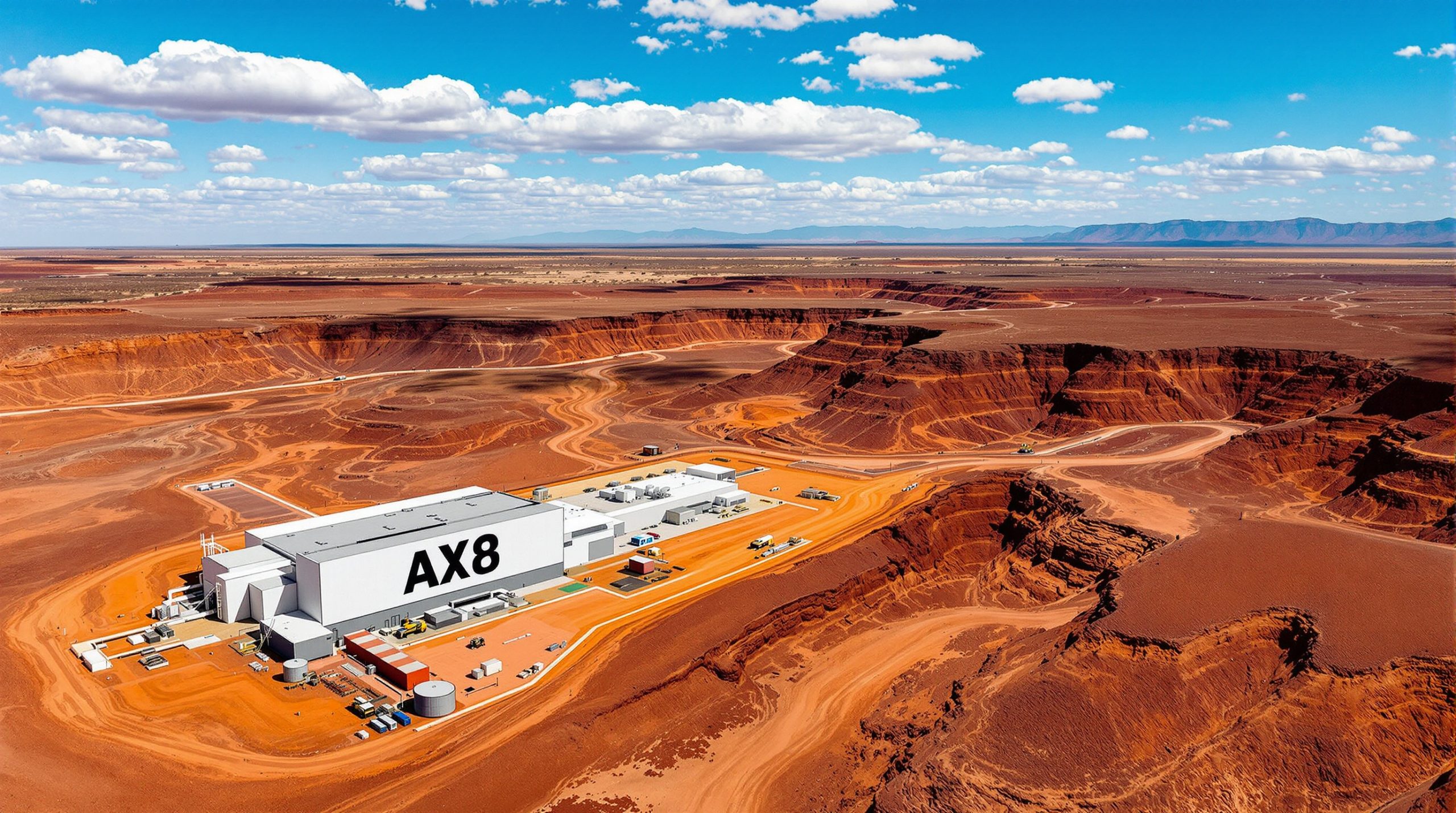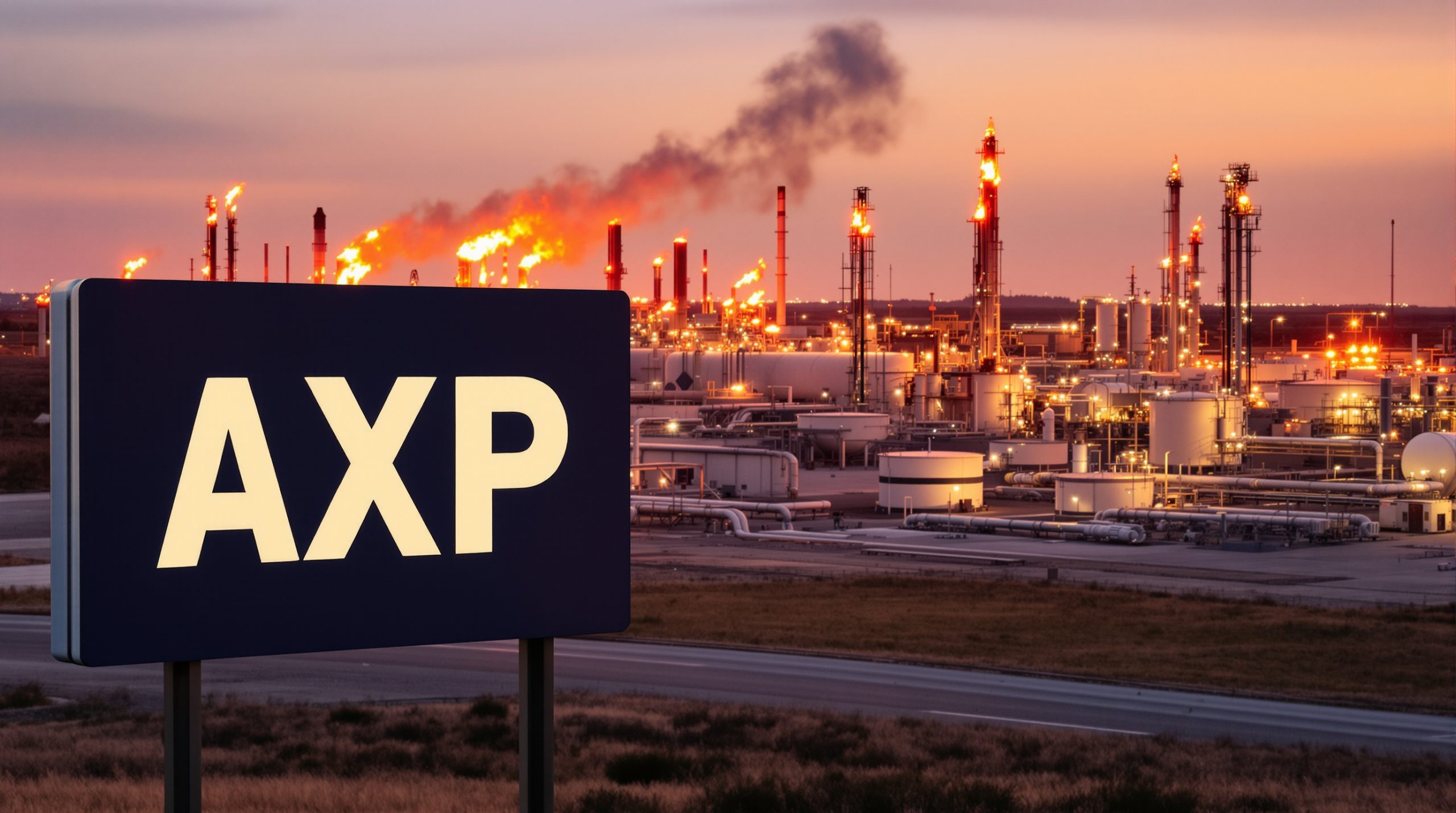Advanced 3D Modeling Reveals Deeper, Larger Mineral System Than Previously Known
KGL Resources (ASX:KGL) has identified multiple high-priority exploration targets at its Jervois Project through advanced 3D inversion modeling, potentially expanding the resource base of this high-grade polymetallic deposit significantly. The company’s integration of decade-long geological data with cutting-edge geophysical techniques has revealed compelling evidence of a much larger, deeper mineral system than previously understood.
Revolutionary 3D Modeling Uncovers Hidden Potential
KGL Resources Jervois Project exploration has leveraged recent advancements in computing power and geoscientific expertise to create joint inversion models that integrate multiple geophysical datasets—gravity, magnetics, and magnetotellurics (MT)—with extensive geological information from drilling campaigns.
Unlike traditional single-parameter models, this integrated approach combines three key physical rock properties:
-
- Low resistivity
-
- High magnetic susceptibility
-
- High density
The results show strong correlation with known mineralisation zones while identifying several new high-potential exploration targets, particularly along the southern extent of the J-fold structure.
Deep Resistivity Anomalies Point to Major System
One of the most significant findings from the KGL major copper discovery at Jervois project is the identification of a major deep-seated low-resistivity feature beneath the central J-Fold, penetrating to depths exceeding 5km. This prominent conductive zone likely represents a major structurally controlled feature potentially linked to mineralisation systems.
The integrated model identified two key low-resistivity areas at 3km depth:
-
- Below the central J-fold structure (Area 1 prospect)
-
- Along the Bellbird-Rockface trend
These features are interpreted to be associated with the J-Fold axial plane and the deeper Jervois Fault structure, suggesting a substantial mineral system at depth.
| Target Area | Location | Key Characteristics | Priority |
|---|---|---|---|
| Area 1 | Central-western J-fold | Coincident low-resistivity, high-density, and magnetic response | High |
| Area 2 | South of Bellbird | Parallel trend to main Bellbird mineralisation | High/Medium-term |
| Area 3 | South of Rockface (Chubko) | Parallel trend to Rockface mineralisation | Medium-term |
| Area 4 | Eastern limb of J-Fold | Along southern extent of Reward South trend | Short-term |
Strategic Exploration Plan to Maximise Value
KGL has outlined a phased exploration strategy to systematically test these targets:
Short-Term Targets (Years 5-10)
The focus is on infilling underutilised processing capacity through low-risk open pit extensions within the existing Jervois tenement (EL25429), including:
-
- Area 4/Krak Ridge (south of Reward South)
-
- Reward North and Boundary prospects
-
- Oleg-Moley trend east of Reward
Medium-Term Targets (Years 10-15)
Two primary medium-term targets have been prioritised:
-
- Area 2 within the Jervois tenement, now considered drill-ready
-
- Area 3, the Chubko trend south of Rockface, validated by MT and gravity models
Long-Term Opportunities (Years 15-20+)
Several exploration targets have been defined within the Unca Creek tenement (EL28082):
-
- Becana-Pioneer trend adjacent to the north of Jervois
-
- Hamburger Hill (east of Jervois)
-
- Eastside prospects in the eastern portion of Unca Creek
Understanding Geophysical Inversion Modeling
Geophysical inversion modeling is a technique that converts measured physical data (like gravity, magnetics, or electrical conductivity) into a 3D representation of subsurface properties. This process allows geologists to “see” beneath the surface without drilling.
In traditional approaches, geologists analyse single datasets independently, which limits their ability to create an accurate subsurface picture. For example, looking at only magnetic data might identify certain features, but misses others that don’t have magnetic properties.
Joint inversion modeling, which KGL Resources Jervois Project exploration has employed, integrates multiple datasets simultaneously. This creates a more comprehensive and accurate subsurface picture by combining different physical measurements that complement each other’s strengths and limitations.
The power of KGL’s approach lies in its integration of three different geophysical methods with substantial geological knowledge, allowing for much more precise targeting of potential ore bodies. By combining low resistivity (how well rock conducts electricity), high magnetic susceptibility (how strongly rock responds to magnetic fields), and high density measurements, the company can identify areas where all three properties suggest potential mineralisation.
Jervois: A Hybrid Mineral System
KGL Resources Jervois Project exploration has identified Jervois as a hybrid mineral system incorporating characteristics of multiple deposit types:
-
- Volcanic-hosted massive sulphide (VHMS)
-
- Sediment-hosted exhalative (SEDEX)
-
- Fe-Cu skarn
-
- Iron oxide-copper-gold (IOCG)-style deposits
This complexity is reflected in two main mineralisation styles:
-
- Lower tenor, stratabound disseminated sulphides
-
- Higher-grade, structurally controlled copper-magnetite or calc-silicate shoots
Structural analysis has shown that copper-silver-gold-magnetite mineralisation is associated with late tectonic processes, while silver-lead-zinc mineralisation is interpreted as pre-tectonic, likely related to a SEDEX-VMS system.
Why Investors Should Follow KGL Resources
The integrated 3D inversion modeling at Jervois represents a significant advancement in KGL’s exploration approach, with several compelling investment considerations:
-
- Resource Growth Potential: The identification of multiple high-priority targets suggests substantial potential to expand the existing resource base and extend mine life well beyond the current plan.
-
- Cost-Effective Exploration: The advanced modeling enables more precise targeting, reducing drilling costs and improving the success rate of future exploration campaigns.
-
- Phased Development Strategy: KGL’s staged exploration approach allows for systematic testing of targets aligned with the project’s development timeline, potentially enabling self-funded exploration through operational cash flow.
-
- Deep System Confirmation: The detection of significant deep-seated conductive features provides strong evidence of a major mineral system extending to depths beyond 5km, suggesting long-term exploration potential.
-
- Technical Edge: The company’s application of cutting-edge geophysical techniques demonstrates technical sophistication and commitment to maximising the value of its assets.
As KGL advances its exploration program with planned MT surveys and follow-up drilling, investors should watch for updates on these high-priority targets, particularly the results from the planned geophysical work at Areas 1-4 and subsequent drill testing.
With copper prices remaining strong amid global supply constraints, KGL’s Jervois Project appears well-positioned to become a significant contributor to Australia’s copper production, offering investors exposure to a developing high-grade polymetallic asset with substantial growth potential.
In the broader mining sector, companies like Vital Metals securing funding for rare earths and Austin Metals beginning gold drilling near top producers are also making significant progress. Furthermore, Sunshine Metals has intercepted promising gold-silver veining at their Tigertown project, while ZMI has secured drilling approval for a massive untested anomaly at Mt Clere. However, KGL Resources Jervois Project exploration stands out for its innovative approach to resource identification and development.
Looking for the Next Major Mineral Discovery?
Discovery Alert’s proprietary Discovery IQ model instantly identifies significant ASX mineral discoveries with transformative potential, similar to KGL Resources’ advanced modelling results at Jervois. Visit our discoveries page to see how early detection of major mineral systems can generate substantial investment returns and secure your 30-day free trial today.




